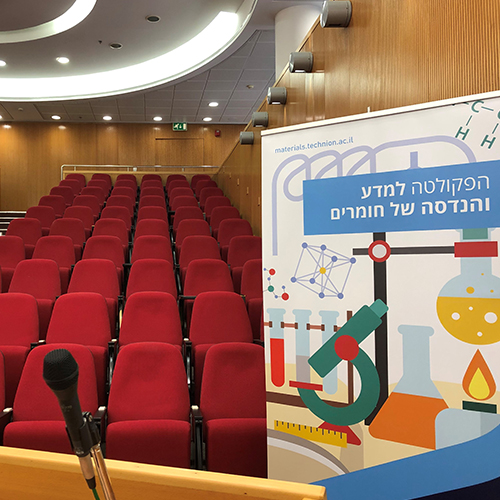
Mr. Eyal Stein - Ph.D. Candidate
25/07/2024
David Wang Auditorium, 3rd floor Dalia Meidan Bldg.
14:30
Bioelectronics bridges biology and electronics using Organic Mixed Ionic-Electronic Conductors (OMIECs). These materials are crucial in Organic Electrochemical Transistors (OECTs), devices that convert ionic signals into electronic outputs. OECTs, a type of OMIEC-based device, traditionally operate unipolarly, limiting their ability to capture complex biological signals. The quest for ambipolar OECTs, capable of transporting both electrons and holes, promises simplified circuit design and enhanced diagnostics.
We introduce a novel approach: blending two unipolar materials to create ambipolar OMIECs for use in OECTs. This strategy offers advantages, bypassing complex synthesis and enhancing performance through synergistic effects. Our work focuses on a polymer-fullerene blend system. We investigate the blend’s microstructure and its impact on OECT characteristics. The blend exhibits enhanced capacitance, mobility, and transient response, suitable for dynamic bioelectronic applications. We demonstrate the practicality of these blend-based OMIECs in achieving high transconductance, stability over numerous polarity cycles, and exceptional ON/OFF ratios in OECT-based inverters.
This work represents a significant advancement in bioelectronics, offering a versatile platform for robust sensing technologies and advanced bio-interfaces. By leveraging blend-based ambipolar OMIECs in OECTs, this study opens new avenues for integrating electronic devices with biological systems, paving the way for next-generation bioelectronic applications.


